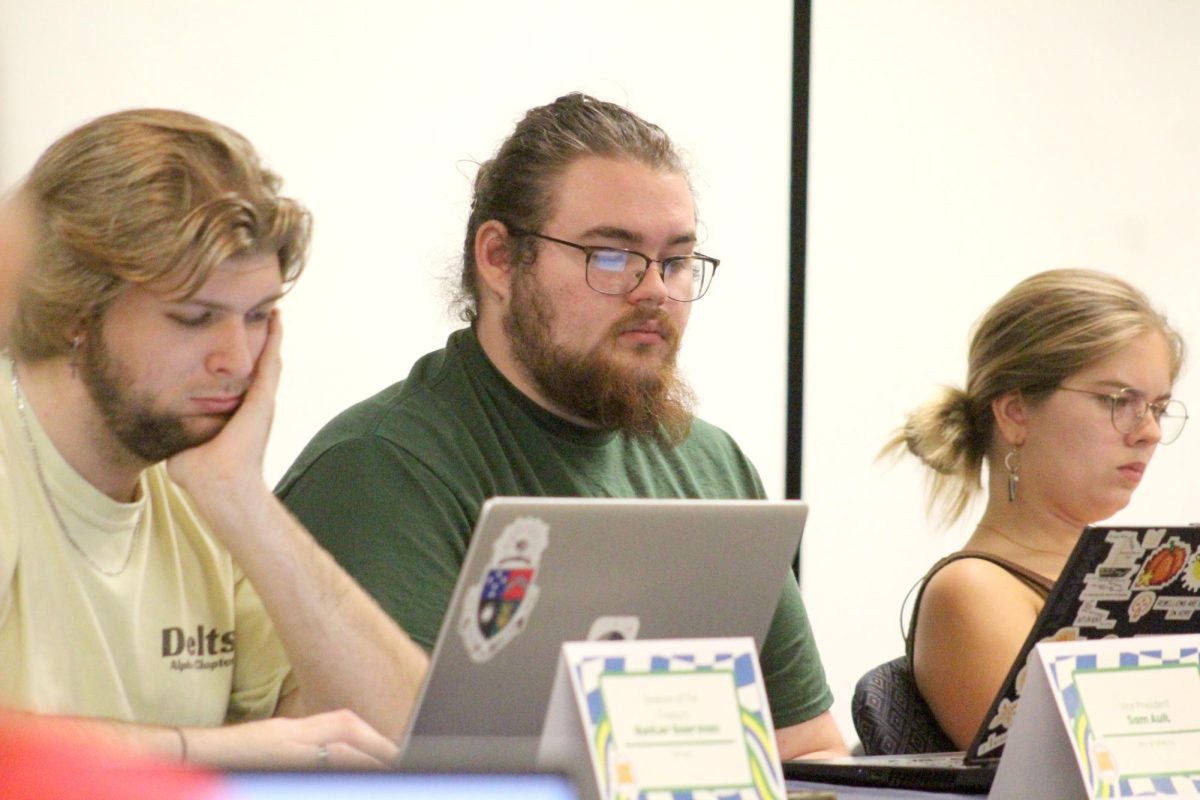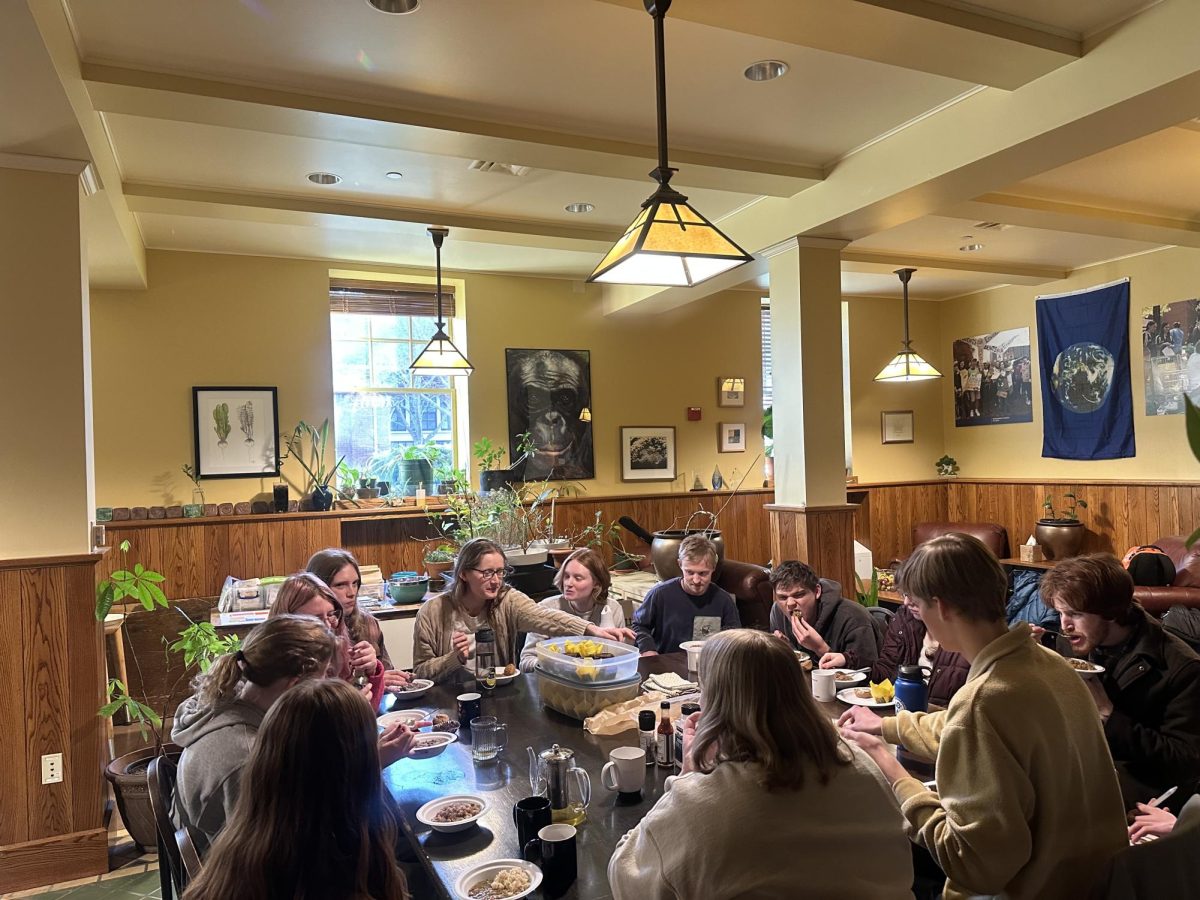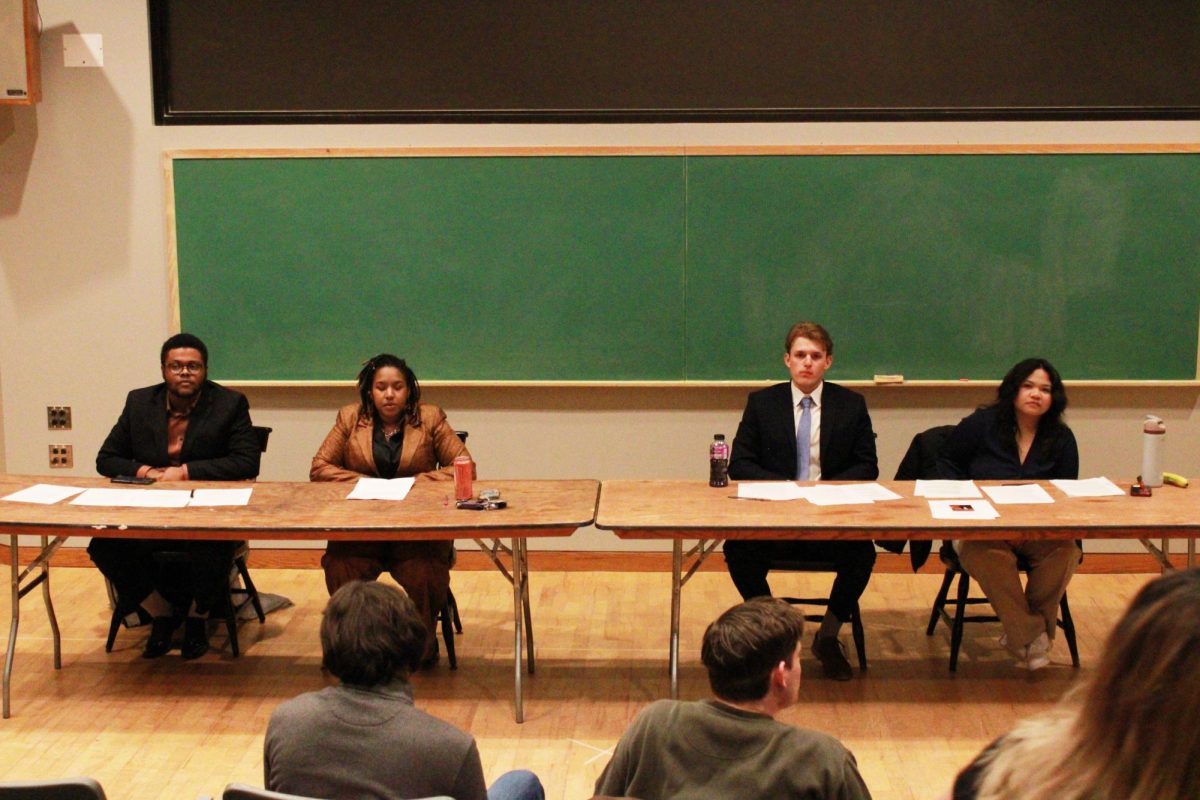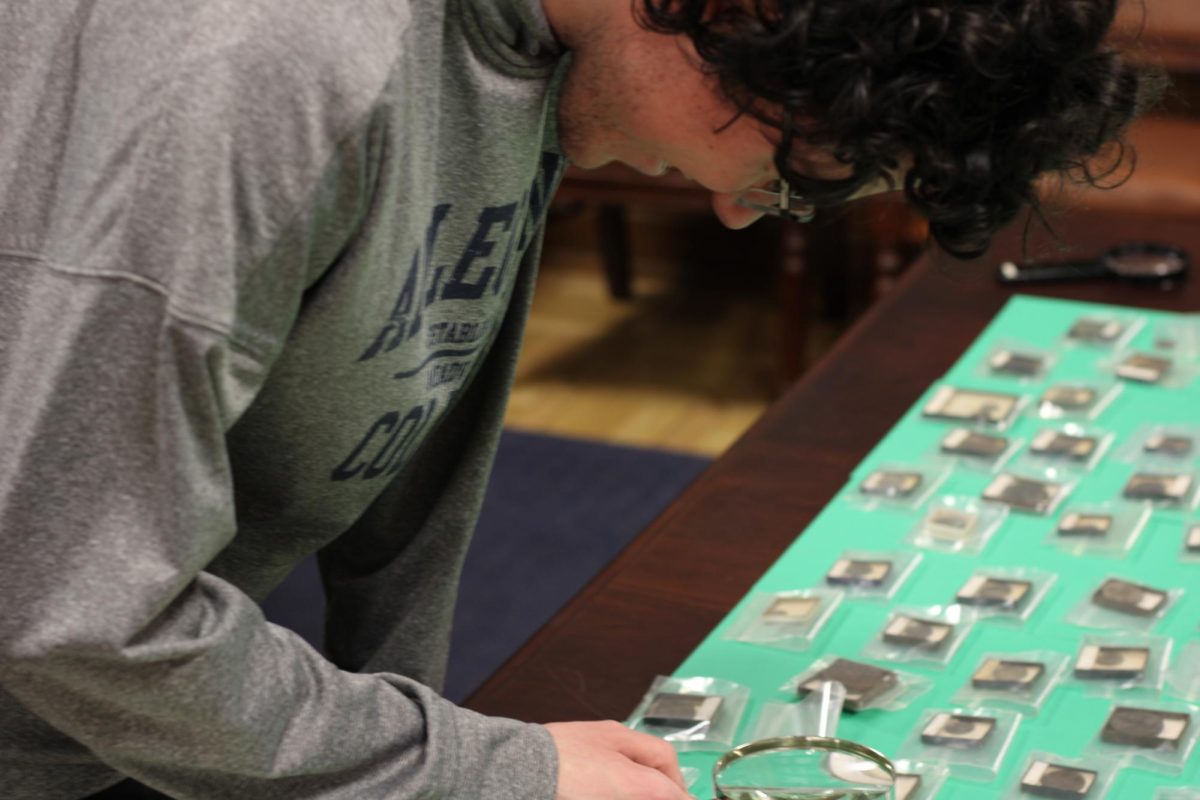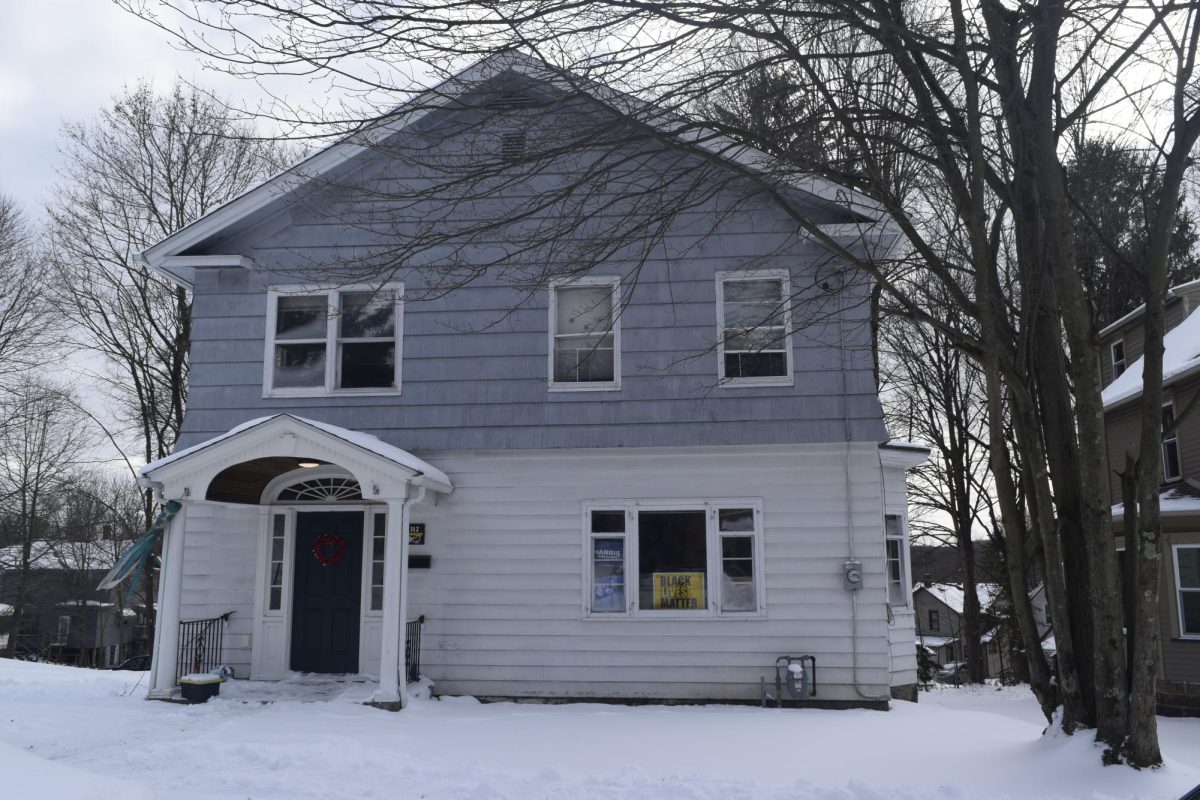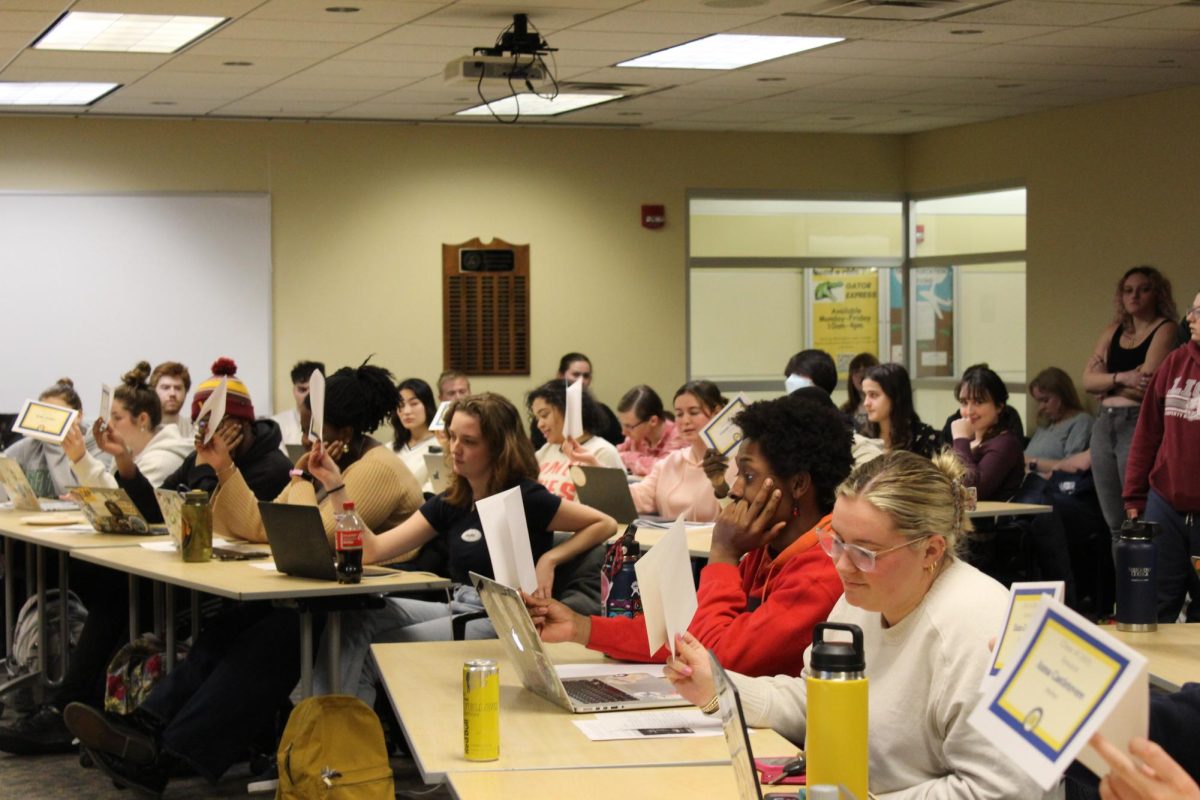Six weeks into the academic year, the Allegheny Student Government remains without a Senate-approved budget and is still supposed to be running on last year’s financial guidelines, though this has not stopped clubs from spending at seven times the rate as last year.
In an email to The Campus Sept. 21, Director of the Treasury Hunter Goerman, ’25, said that this year’s financial guidelines will be completed “by the return of fall break,” though he declined to comment further.
“I’m trying to refrain from giving any new info out as it would add more confusion right now,” Goerman wrote.
ASG President Nicole Recio Bremer, ’25, and Vice President Sam Ault, ’26, declined multiple times to comment on this story.
Article V, Section 1 of ASG’s By-Laws stipulates that the Senate must hear a budget proposal “no later than the second Tuesday following the hearings,” in an apparent reference to individual club budgets. That proposal must be approved with a supermajority of senators in two consecutive General Assemblies.
Ordinarily, that budget presentation comes not long after “Count Day” — the 11th day of classes, when Allegheny’s enrollment number is set — because ASG’s budget is dependent on the size of the student body. Last year, Count Day was on Tuesday, Sept. 13, and by that evening ASG had announced the size of their annual budget in their regular General Assembly.
For the current academic year, Count Day was on Wednesday, Sept. 13; more than three weeks later, and no budget has been presented.
Budget hearings
The club budget hearings were canceled in the spring, and clubs were informed of this prior to the budget application process at the end of last semester.
In an interview published in the Sept. 8 edition of The Campus, ASG President Nicole Recio Bremer, ’25, said that club budget hearings were scrapped by the previous administration.
“That didn’t even happen with (former ASG President) Veronica (Green, ’23) and (former Vice-President) Rudra (Schultz-Ray, ’23),” Recio Bremer told The Campus at the time. “The budget hearings didn’t even happen last semester.”
Those hearings are used alongside budget applications and estimates of the overall ASG budget to develop estimates for individual club budgets.
However, in an interview last month, Green, who graduated in May, said that she had advised Recio Bremer and Ault to hold off on budget estimates until ASG’s full budget was known in mid-September. In the past, ASG would construct their club budgets based on finance estimates delivered at the end of the spring semester, and throughout the summer.
At the start of last academic year, the budget process stumbled after ASG underestimated their income over the summer. In response, ASG allocated an additional $50,000 from the Surplus Fund to the General Fund and reopened club budgets.
“I wanted to prevent them from doing three rounds of budgets — one in May, one in the end of August, and then another one in the end of September when they have their actual count — because I felt that that was a lot of wasted time,” Green said. “I did say that they should reconvene in September when they have more of the numbers.”
ASG did not reconvene with finalized budgets, however. Instead, they announced at the beginning of the semester that formal club budgets would be done away with entirely and that all funds will be appropriated directly from the General Fund.
ASG’s current Financial Guidelines lists out six funds that student organizations can pull from:
– Annual budgets, for regular club activities.
– The General Fund, for special events or programs not covered by the annual budget.
– The Speaker Fund, for bringing a speaker or lecturer to campus.
– The Student Action Fund, to develop a project that will “improve the overall campus life experience for the student body.”
– The Surplus Fund, for purchases of uniforms, equipment, or other items with long-term uses.
– The CILC Fund, for members of the Culture, Identity and Leadership Coalition run through the IDEAS Center for diversity programming.
Those funds, including the club budgets, are defined in the budget proposal sent to the Senate.
The Financial Guidelines also state that “ASG budgets are allocated in the spring semester for the following academic year.”
ASG’s financial system can only be amended with a vote from the Rules and Finance committees. Until they’re changed, last year’s guidelines are still in effect, according to Green.
“That is a responsibility of new administrations — if you’re going to shape the financial processes, you need to put it in writing so that there is some sort of lawbook,” Green said. “Technically they’re still following our rulebook — Rudra and I’s — and our rulebook says that club budgets are a thing … If they disagree with anything that we had in our financial policies, they still technically need to follow it until they bring forth their own revisions.”
Money in, money out
A lack of concrete guidelines has not stifled finance requests, however, with student groups using funds at more than seven times the rate of last year. This year, clubs have spent $46,540.75 in the first five weeks of the school year. Last year, clubs spent a total of $6,349.30 over the same time period.
Green disagreed with the decision to remove club budgets and argued that the annual allocations helped keep spending in check.
“Everybody starts very gung-ho in the beginning of the year being all like ‘We’re going to do all of these events, and spend a lot of money,’ and I think club budgets kind of help them rein it in,” Green said.
At the same time, it is unclear if ASG will ever run out of money; the organization has run a surplus every academic year since at least 2016-17, and in two of the last three years, the Surplus Fund has been larger than the General Fund.
Regardless of the overall financial picture, Green argued that the current administration cannot develop policy without changing the letter of the law.
“Our administration did want clubs to have budgets this year,” Green said. “Until they come forth with their own financial policies, they are still abiding by the ones that we had, and so they can’t go forth with any new changes.”



